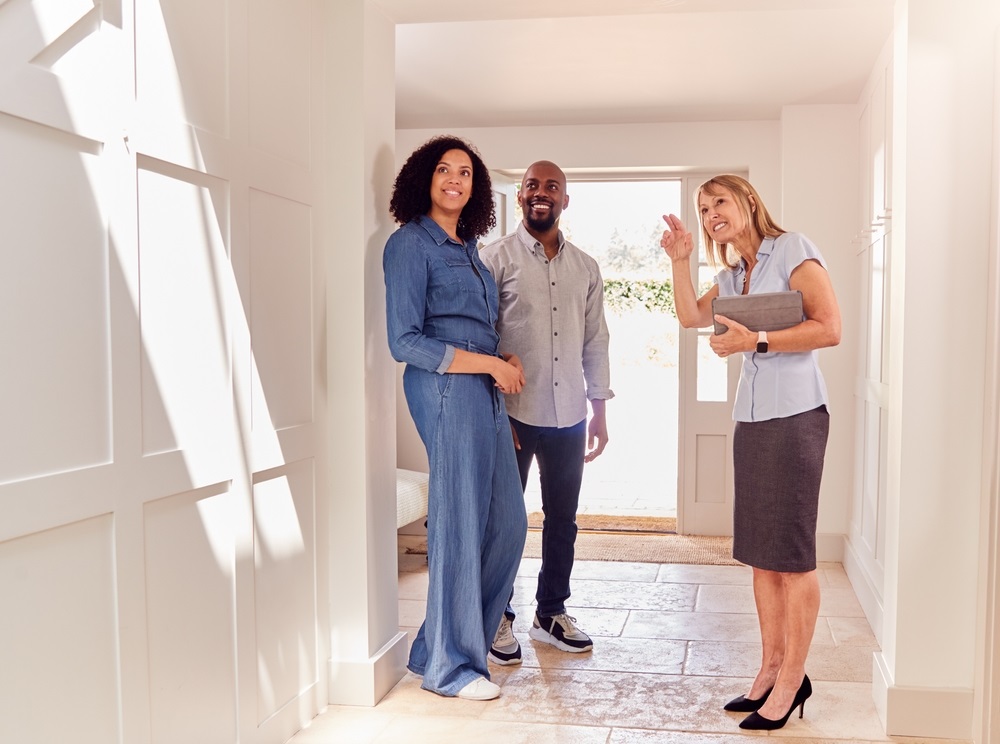From checking out the neighbours to turning on the taps – there’s more to house hunting than simply taking a tour. Here are some tips on how to get the most of your property viewing
 It’s well known that Spring is the most popular time to view homes as the property market begins to heat up before the summer peak.
It’s well known that Spring is the most popular time to view homes as the property market begins to heat up before the summer peak.
If you are looking for your dream home at the moment, you will probably have a good idea of what you want and will have refined your search accordingly.
Spotting the right property on the internet or estate agent window is a good start, viewing it is the next step. But, in reality, it’s those crucial questions you ask when taking the grand tour that can really make or break whether it’s the home for you according to Anna McEntee from the home insurance team at Comparethemarket.
She has drawn up a list of questions which house hunters should all be asking if they want to get the most from their house viewing and ensure they don’t make a bad move.
She said: “Whether you’re a first-time buyer or you’ve been through the purchase process before, viewing a potential new home can be an exciting experience.
“However, purchasing a property is a big investment – and commitment – so, it’s crucial that prospective homeowners ask all the right questions when viewing, to ensure they’re making the right decision.”
Here are McEntee’s 10 question suggestions:
-
How long has the house been up for sale?
The answer to this question can potentially be quite revealing, says McEntee. “If it’s been on the market for upwards of three months, something might be putting buyers off – it could be the price or it could be something less obvious.
“Have a word with the estate agent to find out more.”
-
How long have the sellers lived there?
McEntee explained a property which has only lived in for a short time could be a red flag, so this can be a really useful question.
“The reasoning behind the sale could be perfectly innocent but it’s worth investigating either way,” she added.
-
Is there a chain?
No one wants to be caught up in a long, complex chain. Asking this question, explained McEntee, will provide an insight into how long the whole process is likely to take.
“If the current owners haven’t yet found a new place or are in a chain, you might want to keep looking elsewhere, depending on your ideal timeline,” she added.
-
What’s the area like?
You’ve probably done your own investigating into this but there’s nothing like local knowledge to give you a first-hand feel for the location. McEntee said: “Schools, parks, transport links, and leisure facilities are a few of the things you want to ask about.
“You can of course find out a lot from your own research but someone who’s lived there before will be able to give you a better insight into the feel of the area.”
-
What work has been done on the house?
“If major renovations have been done, you should ask to see builders’ receipts, guarantees, and proof of planning permission,” McEntee advised.
“If an extension has been built without planning permission, you may have to tear it down. It’s also a good idea to ask about any damp issues or flooding they may have had in the past.”
-
What’s included in the sale?
It’s a good idea to find out whether fixtures and fittings, garden sheds and greenhouses, and the satellite dish will be left for you, McEntee suggested.
-
What internet access is available?
Do you rely on having a good internet connection? Whether it’s for remote working or your children’s devices having a decent broadband connection could be a deal-breaker for many buyers.
McEntee explained this was a particularly important question if the house is located in a rural area.
-
Can you turn on the taps?
Don’t be afraid to try out the taps, McEntee said. “Low water pressure is one thing but a tap that only lets out a trickle could be an indicator of a larger problem.
“Pay attention to how long it takes for hot water to come through, find out the age of the boiler, and ask when it was last serviced.”
-
What are the neighbours like?
Sellers are legally obliged to tell you if they’ve had any past disputes with the neighbours, so it’s definitely a good idea to add this on your list of questions to ask, McEntee advised. “Even the most perfect property can be tainted by a bad neighbour,” she added.
-
How much are the council tax and utility costs?
Asking for approximate costs of council tax and utility bills will help you understand potential outgoings of a new home, explained McEntee.
“It’s also a legal requirement for sellers/estate agents to share the Energy Performance Certificate (EPC) rating, so request this to understand how energy-efficient the property, as that will impact energy bills.”














